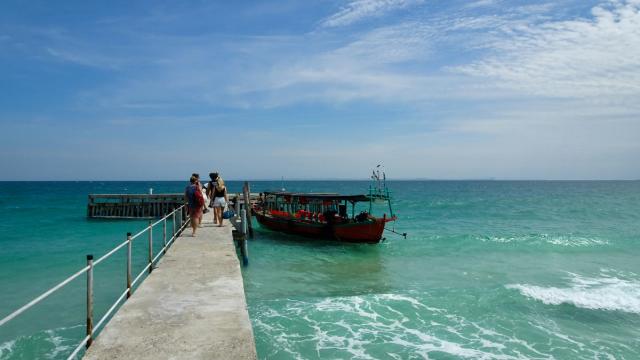SDSN Southeast Asia Leading The Way On Sustainable Tourism
Bringing together multiple actors, SDSN Southeast Asia has emphasized the pivotal role of sustainable practices in reshaping the travel industry. Key takeaways highlighted the imperative need for collaborative efforts, innovative solutions, and public-private partnerships to drive positive change and resilience in the post-pandemic era.
On March 5th, 2024, SDSN Southeast Asia, in collaboration with SDSN Indonesia, SDSN Thailand, and Politeknik International Bali (PIB), jointly organized a webinar about sustainable tourism titled “Navigating the Future of Sustainable Tourism in a Post-Covid World." This webinar welcomed over 100 participants from different sectors globally. This webinar not only discussed the revival of tourism post-COVID, but also focused on charting a new course which prioritizes people and the planet alongside profit. Among the audience were representatives of the SDSN network, political figures, lecturers and students of tourism, small and big businesses from the tourism industry, and NGOs.
Moderated by Erika Sedana, Director of Partnership and Event at the Politeknik International Bali College, the panelists discussed the impact of the COVID-19 pandemic on the tourism industry and its subsequent recovery; the relevance of sustainable tourism's presence in the narrative; and the tourism industry's role in achieving a sustainable recovery post-COVID by aligning profit, people, and the planet with the SDGs. Ambassador Tantowi Yahya, the President of United In Diversity Foundation, successfully delivered the opening remarks and His Excellency reminded the audience of the context of the webinar in this post-COVID era
Next, Prof. Lisa C. Wan gave a speech on the situation in East Asia, with a focus on Hong Kong SAR and mainland China. Dr. Pairach Piboonrungrop from Chiang Mai University shared the importance of academic research in regards to sustainable tourism ideas in Thailand. Rikje Huber and Sean Nino, both focused on the Indonesian context speaking about volunteerism and technology and architecture design. Panelists emphasized the necessity of sustainably thinking of tourism and sharing insights with participants on how to implement sustainable ideas in their respective activities.
After the discussion, the participants engaged with the panelists in a 30-minute Q&A session. The conclusion highlighted the critical insights into the dynamic and characteristic nature of navigating sustainable tourism, pertinent not only to ASEAN but also on a global scale. It underscored the evolving trajectory of business models towards sustainable tourism as a consequential outcome.
